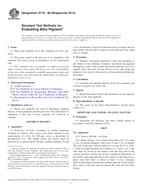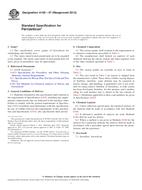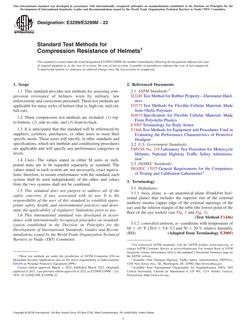1.1 This practice covers procedures for testing metals for embrittlement and cracking susceptibility when exposed under stress to a hot salt environment. This practice can be used for testing all metals for which service conditions dictate the need for such information. The test procedures described herein are generally applicable to all metal alloys; required adjustments in environmental variables (temperature, stress) to characterize a given materials system should be made. This practice describes the environmental conditions and degree of control required, and suggests means for obtaining this desired control.
1.2 This practice can be used both for alloy screening for determination of relative susceptibility to embrittlement and cracking, and for the determination of time-temperature-stress threshold levels for onset of embrittlement and cracking. However, certain specimen types are more suitable for each of these two types of characterizations.
Note 1
This practice relates solely to the performance of the exposure test. No detailed description concerning preparation and analysis of specimen types is offered. However, the optimum sample design may be one that uses the same type of stress encountered in service loading situations. Standards describing principal types of stress corrosion specimens, their preparation, and analysis, include Practices G 30, G 38, and G 39.
This standard does not purport to address all of the safety concerns, if any, associated with its use. It is the responsibility of the user of this standard to establish appropriate safety and health practices and determine the applicability of regulatory limitations prior to use.
Product Details
- Published:
- 11/01/2006
- Number of Pages:
- 5
- File Size:
- 1 file , 77 KB


